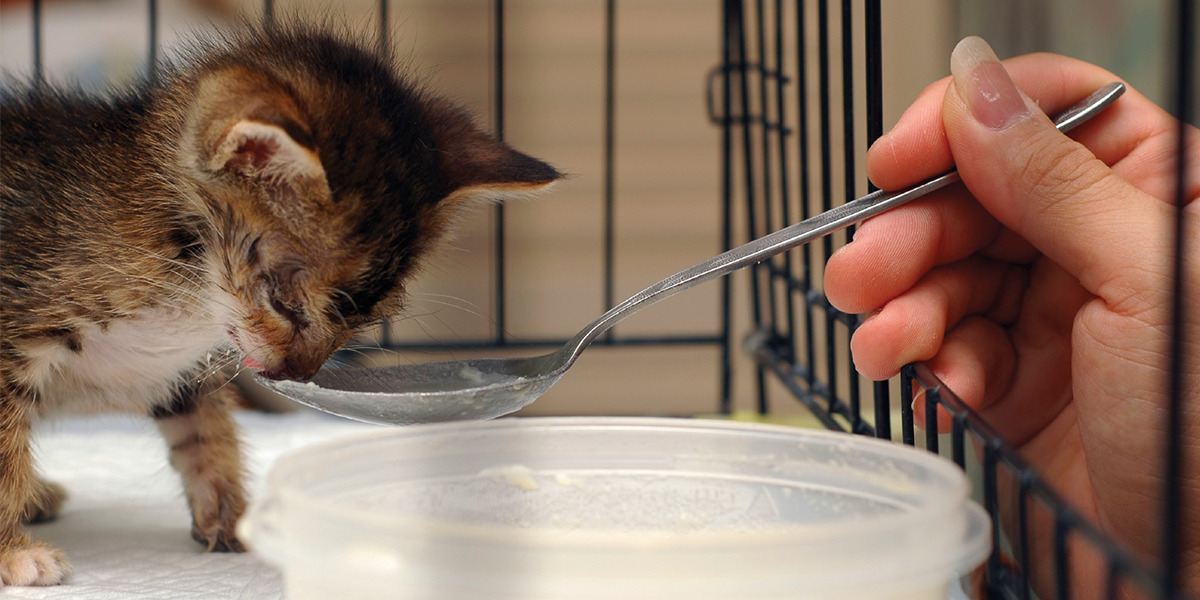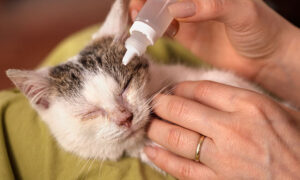How to Care for Newborn Kittens Without Mom: Expert Guide
Welcoming a litter of newborn kittens into your life, especially without their mother, can be both heartwarming and challenging. When faced with the responsibility of caring for these vulnerable felines, it’s essential to have the right knowledge and resources. In this expert guide, we’ll provide you with valuable insights and step-by-step instructions on how to care for newborn kittens without their mother.
Table of Contents
(How to Care for Newborn Kittens Without Mom)
- Introduction
- Assessing the Situation
- 2.1. Determine the Kittens’ Age
- 2.2. Check for Signs of Distress
- 2.3. Secure a Safe and Warm Environment
- Feeding and Hydration
- 3.1. Selecting the Right Kitten Formula
- 3.2. Feeding Schedule
- 3.3. Monitoring for Adequate Nutrition
- Stimulation and Elimination
- 4.1. Stimulating Urination and Defecation
- 4.2. Keeping the Nest Clean
- Health and Hygiene
- 5.1. Monitoring Kittens’ Health
- 5.2. Preventing Parasites
- Socialization and Bonding
- 6.1. Handling with Care
- 6.2. Gentle Introduction to Human Interaction
- Weaning and Transitioning to Solid Food
- 7.1. Introducing Solid Food
- 7.2. Gradual Weaning
- Veterinary Care
- 8.1. Vaccinations and Deworming
- 8.2. Spaying and Neutering
- Finding Loving Homes
- 9.1. Screening Potential Adopters
- 9.2. Providing Adoption Documentation
- Conclusion
- FAQs
1. Introduction(How to Care for Newborn Kittens Without Mom)
Newborn kittens without their mother require special care and attention. Whether you’re a seasoned cat owner or facing this situation for the first time, this guide will help you navigate the challenges and joys of nurturing these tiny, helpless creatures.
2. Assessing the Situation
2.1. Determine the Kittens’ Age(How to Care for Newborn Kittens Without Mom)
Knowing the kittens’ age is crucial for their care. Newborns require different care than older kittens. Use physical and behavioral cues to estimate their age.
2.2. Check for Signs of Distress
Observe the kittens for signs of distress, such as crying, shivering, or weakness. Immediate action may be needed if they appear unwell.
2.3. Secure a Safe and Warm Environment
Create a warm, quiet, and secure nesting area for the kittens. A cardboard box with soft bedding and a heating pad (set on low) can provide the necessary warmth.
3. Feeding and Hydration
3.1. Selecting the Right Kitten Formula
Choose a high-quality kitten milk replacer and follow the manufacturer’s instructions for mixing. Do not feed them cow’s milk, as it can cause digestive issues.
3.2. Feeding Schedule
Feed the kittens using a sterilized bottle or syringe every 2-3 hours, even at night. Adjust the feeding schedule as they grow and their appetite changes.
3.3. Monitoring for Adequate Nutrition
Monitor the kittens’ weight gain and ensure they are adequately hydrated. Dehydration can be life-threatening, so watch for signs like sunken eyes or dry gums.
4. Stimulation and Elimination
4.1. Stimulating Urination and Defecation
After each feeding, gently stimulate the kittens’ anal and genital areas using a warm, damp cotton ball to encourage urination and defecation. Their mother would typically do this for them.
4.2. Keeping the Nest Clean
Maintain a clean environment by changing the bedding regularly and keeping the nesting area free of feces and urine.
5. Health and Hygiene
5.1. Monitoring Kittens’ Health
Watch for any signs of illness, such as diarrhea, vomiting, or labored breathing. Seek immediate veterinary care if you notice any concerning symptoms.
5.2. Preventing Parasites
Consult with a veterinarian to implement a deworming and parasite prevention plan to keep the kittens healthy.
6. Socialization and Bonding
6.1. Handling with Care
Handle the kittens gently and minimally during their first few weeks of life. As they grow, gradually increase human interaction to foster positive socialization.
6.2. Gentle Introduction to Human Interaction
Expose the kittens to calm, soothing human voices and touch to help them feel secure and form a bond with their caregiver.
7. Weaning and Transitioning to Solid Food
7.1. Introducing Solid Food
Around 3-4 weeks of age, start introducing a high-quality kitten food softened with formula. Allow them to explore and taste it at their own pace.
7.2. Gradual Weaning
Slowly reduce formula feedings as the kittens show more interest in solid food. The weaning process should be gradual to ensure they receive proper nutrition.
8. Veterinary Care
8.1. Vaccinations and Deworming
Work with a veterinarian to establish a vaccination schedule for the kittens. Deworming is essential to prevent internal parasites.
8.2. Spaying and Neutering
Plan for spaying and neutering when the kittens reach the appropriate age. This helps control the feline population and provides health benefits.
9. Finding Loving Homes
9.1. Screening Potential Adopters
Screen potential adopters carefully to ensure they provide loving, responsible homes for the kittens. Consider home visits or references when making adoption decisions.
9.2. Providing Adoption Documentation
Give adopters essential documentation, including vaccination records, spaying/neutering certificates, and care guidelines to ensure the kittens’ well-being in their new homes.
10. Conclusion
Caring for newborn kittens without their mother is a challenging but rewarding experience. With dedication, knowledge, and the right resources, you can provide these fragile creatures with the love and care they need to thrive.
11. FAQs
Q1: How do I estimate a kitten’s age?
You can estimate a kitten’s age by observing their eyes, ears, teeth, and behavior. Younger kittens have closed eyes and ears, while older ones have teeth and are more active.
Q2: Can I use a regular baby bottle for feeding kittens?
It’s best to use a specialized kitten nursing bottle with a nipple designed for their small mouths.
Q3: When should I start litter training the kittens?
You can begin litter training at around 4-5 weeks of age by providing a shallow, kitten-safe litter box.
Q4: How do I introduce solid food to kittens?
Start with a small amount of softened kitten food on a plate. Gently guide them to it, and let them explore and taste the food at their own pace.
Q5: What age should kittens be spayed or neutered?
Most veterinarians recommend spaying/neutering at around 8-12 weeks of age or when the kittens reach 2 pounds in weight.
Caring for newborn kittens without their mother is a labor of love. Your dedication to their well-being ensures that these fragile beings have a chance at a healthy and happy life.
Read More:How to Care for Newly Born Kittens: Expert Tips and Advice




















